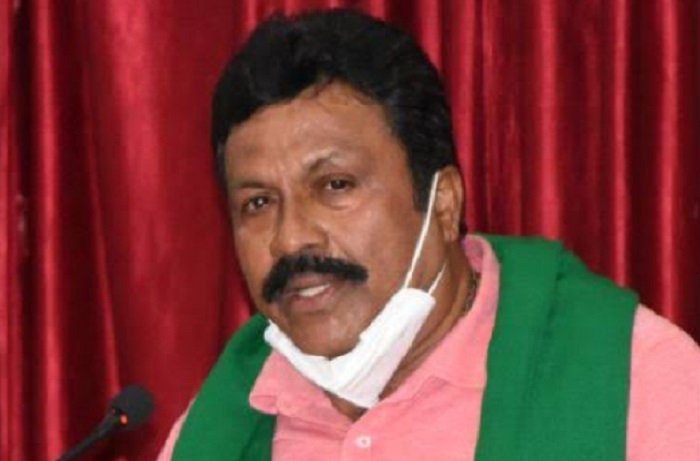Mangaluru, Oct 3: Bharatiya Janata Party (BJP) chief Amit Shah, who will be launching a 15-day march in Kerala on Tuesday, was accorded a warm welcome at Mangaluru International Airport in the wee hours.

Though Shah was supposed to reach Mangaluru at 6 p.m. on Monday, a special flight carrying him landed at the airport at 1.15 a.m. after delay of over seven hours.
Dakshina Kannada MP Nalin Kumar Kateel, former ministers Krishna J Palemar, Nagaraj Shetty DK BJP president Sanjeeva Matandoor were present among others at the Airport on the occasion.
Amidst tight security Shah immediately headed to Kerala spent night at the Bekal Fort resort. Shah will kick off the Jan Raksha Yatra (people’s protection march) from Payyannur in Kannur, chief minister Pinarayi Vijayan’s home town.
He is expected to return to Mangaluru tomorrow (October 4) and chair a meeting of BJP leaders and office-bearers at Ocean Pearl Hotel at 10 a.m. Later, he will address BJP workers at the district at TMA Convention Centre.










Comments
Some Bjp supporters still dont understand the JUMLA.... of cunning Amit.
Add new comment